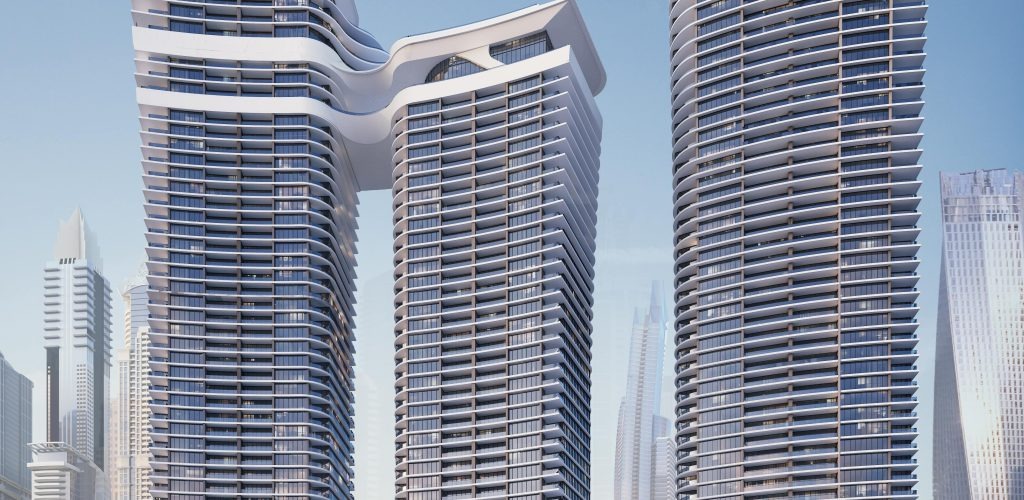Dubai’s Real Estate FinancingDubai’s Real Estate Financing offers a myriad of opportunities for buyers and investors, and one crucial aspect to consider when purchasing property is financing. Whether you are a first-time buyer or an experienced investor, understanding the available financing options is essential to make informed decisions. In this article, we will explore two popular financing methods in Dubai: mortgages and payment plans offered by developers.
Introduction
Investing in real estate is a significant financial commitment, and most buyers require financing to facilitate their purchase. Real Estate Agency in Dubai market provides various financing options tailored to the diverse needs of buyers. Dubai’s Real Estate Financing mortgages and developer payment plans stand out as common choices.
Understanding the Importance of Real Estate Financing
Real Estate Agency in Dubai financing plays a vital role in enabling individuals to acquire properties that align with their goals and aspirations. Whether it’s buying a residential property or investing in commercial real estate, financing options provide the necessary liquidity to turn dreams into reality. By exploring the available financing avenues, buyers can determine the most suitable option for their circumstances.
Traditional Mortgage Options
Conventional Mortgages
Conventional mortgages are the most common type of financing for property purchases worldwide. They involve borrowing a significant portion of the property’s value from a financial institution and repaying it over an agreed-upon period, usually with interest. Conventional mortgages in Dubai are offered by both local and international banks and are available to residents and non-residents.
Islamic Mortgages
Islamic mortgages, also known as Sharia-compliant mortgages, cater to individuals who prefer financing options adhering to Islamic principles. These mortgages operate on the concept of shared ownership, where the bank and the buyer jointly own the property until the loan is fully repaid. Instead of charging interest, the bank and buyer share the property’s rental income or follow a structure based on the cost-plus-profit model.
Traditional Mortgage Options
Conventional Mortgages
Conventional mortgages are the most common type of financing for property purchases worldwide. They involve borrowing a significant portion of the property’s value from a financial institution and repaying it over an agreed-upon period, usually with interest. In Property in Dubai, conventional mortgages are offered by both local and international banks.
When considering a conventional mortgage, it’s essential to understand the key aspects involved:
Eligibility Criteria
Financial institutions have specific eligibility criteria that applicants must meet to qualify for a conventional mortgage. These criteria typically include factors such as income verification, employment stability, credit history, and debt-to-income ratio. Meeting these requirements is crucial to secure a mortgage.
Down Payment Requirements
One of the essential factors to consider when opting for a conventional mortgage is the down payment requirement. The down payment is a percentage of the property’s purchase price that buyers must pay upfront. In Property in Dubai, the typical down payment ranges from 20% to 25% of the property’s value, depending on various factors such as the buyer’s profile, property type, and the lender’s policies.
Interest Rates and Terms
Interest rates significantly impact the overall cost of a conventional mortgage. Financial institutions offer different interest rate options, including fixed-rate and variable-rate mortgages. Fixed-rate mortgages have a stable interest rate throughout the loan term, providing predictability and consistency in monthly payments. Variable-rate financing, on the reverse hand, have variable interest rates that change according on market conditions.
The loan term is another crucial aspect to consider. Traditional mortgage terms in Property in Dubai, typically range from 5 to 25 years, with longer terms resulting in lower monthly payments but higher overall interest paid. It’s important to carefully evaluate interest rates, terms, and repayment options to choose the most suitable mortgage for your financial situation.
Loan-to-Value Ratio
A loan-to-value (LTV) ratio denotes the share of a property’s value that a financial institution would finance. Financial institutions often have maximum LTV limits, and buyers may need to pay the difference between the loan amount and the property’s value as an additional down payment. In Property in Dubai, the LTV ratio for conventional mortgages generally ranges from 70% to 85% depending on various factors, including the property type and the buyer’s profile.
When exploring conventional mortgage options, it’s important to compare offers from different banks, consider the associated fees, and assess the overall cost over the loan term. Seeking advice from mortgage specialists can help in navigating the complexities and finding the most suitable mortgage option for your specific needs.
Islamic Mortgages
Islamic mortgages, also known as Sharia-compliant mortgages, cater to individuals who prefer financing options adhering to Islamic principles. These mortgages operate on the concept of shared ownership, where the bank and the buyer jointly own the property until the loan is fully repaid.
Islamic mortgages differ from conventional mortgages in the way they handle interest. Instead of charging interest, Islamic mortgages follow alternative structures compliant with Islamic law. One common structure is the cost-plus-profit model, where the bank and the buyer agree on a purchase price that includes a profit margin for the bank. The buyer pays the purchase price in installments, making the bank a co-owner of the property. Once the mortgage is fully repaid, the bank’s share is transferred to the buyer, making them the sole owner.
Islamic mortgages have specific features to consider:
Eligibility Criteria
The eligibility criteria for Islamic mortgages are similar to conventional mortgages, considering factors such as income verification, employment stability, credit history, and debt-to-income ratio. Islamic banks may have specific requirements related to Sharia compliance and ethical considerations.
Down Payment Requirements
The down payment requirements for Islamic mortgages are generally similar to conventional mortgages, ranging from 20% to 25% of the property’s value. The specific down payment percentage may vary depending on factors such as the buyer’s profile, the property type, and the bank’s policies.
Profit Rates and Terms
Islamic mortgages operate on a profit-sharing basis rather than charging interest. The profit rate represents the bank’s share of the property’s rental income, which is determined based on the agreed-upon profit-sharing ratio. The profit rate can be fixed for the entire mortgage term or reviewed periodically based on prevailing market conditions.
Like conventional mortgages, Islamic mortgages have specific terms and repayment options. The loan term, which can range from 5 to 25 years, affects the overall cost and monthly payments. Buyers should carefully evaluate the profit rates, terms, and repayment options offered by different Islamic banks to choose the most suitable option.
Islamic mortgages provide an alternative financing option for individuals seeking Sharia-compliant solutions. It’s important to consult with Islamic mortgage specialists and understand the specific terms, conditions, and requirements associated with Islamic mortgages.
By considering the nuances of both conventional and Islamic mortgages, buyers in Property in Dubai can make informed decisions and choose the financing option that aligns with their financial goals and preferences.
Key Considerations for Mortgage Financing
When opting for a mortgage, several key factors require careful consideration:
Eligibility Criteria
Dubai’s Real Estate Financing, Financial institutions impose eligibility criteria to assess borrowers’ creditworthiness. These criteria typically include income verification, employment stability, credit history, and debt-to-income ratio. Meeting the eligibility requirements is crucial to secure a mortgage.
Down Payment Requirements
Mortgages require a down payment, which is a percentage of the property’s purchase price paid upfront. The down payment amount varies depending on the property type, the buyer’s profile, and the lending institution. It is essential to understand the down payment requirements associated with different mortgage options.
Interest Rates and Terms
Interest rates significantly impact the total cost of a mortgage. Buyers should compare interest rates offered by different banks and consider the loan term. Longer loan periods may result in cheaper monthly payments but greater interest paid overall. It is best to thoroughly compare interest rates and conditions before deciding on the best alternative.
Loan-to-Value Ratio
The loan-to-value (LTV) ratio represents the percentage of the property’s value that a lender is willing to finance. Lenders often have maximum LTV limits, and buyers may need to pay the difference between the loan amount and the Dubai’s Real Estate Financing, property’s value as an additional down payment.
Key Considerations for Mortgage Financing
When exploring mortgage financing options, it’s important to consider several key factors to ensure you make an informed decision. By understanding these considerations, you can select a mortgage that aligns with your financial goals and circumstances.
Eligibility Criteria
Financial institutions impose eligibility criteria to assess borrowers’ creditworthiness and determine their suitability for a mortgage. These criteria typically include factors such as income verification, employment stability, credit history, and debt-to-income ratio. Meeting the eligibility requirements is crucial to secure a mortgage. Before applying for a mortgage, it’s advisable to review and understand the eligibility criteria set by different lenders.
Down Payment Requirements
One of the significant aspects of mortgage financing is the down payment. The down payment is a percentage of the property’s purchase price that buyers must pay upfront. In Dubai, the down payment requirement typically ranges from 20% to 25% of the property’s value, depending on various factors such as the buyer’s profile, property type, and the lender’s policies. It’s essential to consider your financial capacity and plan for the down payment accordingly.
Interest Rates and Terms
Interest rates play a crucial role in determining the overall cost of a mortgage. Dubai’s Real Estate Financing, Financial institutions offer different interest rate options, including fixed-rate and variable-rate mortgages. Fixed-rate mortgages have a stable interest rate throughout the loan term, providing predictability and consistency in monthly payments. On the other hand, variable-rate mortgages have interest rates that fluctuate based on market conditions. It’s important to carefully evaluate the interest rates offered by different banks and consider the loan term. Longer loan periods may result in cheaper monthly payments but greater interest paid overall. Assessing the interest rates and terms allows you to understand the financial implications of the mortgage and select the most favorable option for your situation.
Loan-to-Value Ratio
The loan-to-value (LTV) ratio represents the percentage of the property’s value that a lender is willing to finance. Lenders often have maximum LTV limits, and buyers may need to pay the difference between the loan amount and the property’s value as an additional down payment. In Dubai, the LTV ratio for conventional mortgages generally ranges from 70% to 85% depending on various factors, including the property type and the buyer’s profile. Understanding the LTV ratio helps you determine the amount of financing you can expect and plan accordingly.
Considering these key factors will enable you to make an informed decision when choosing a mortgage. It’s advisable to compare offers from different financial institutions, assess your financial capabilities, and seek professional advice to ensure you select the mortgage option that best suits your needs and long-term financial goals.
Developer Payment Plans
Introduction to Developer Payment Plans
Developer payment plans are an alternative financing option offered directly by property developers. These plans allow buyers to pay for the property in installments, spreading the cost over a specified period. Developer payment plans are commonly available for off-plan properties, where buyers purchase units before construction completion.
Benefits of Developer Payment Plans
Developer payment plans provide flexibility and convenience to buyers, particularly those who may not qualify for traditional mortgages or prefer not to engage with financial institutions. These plans often come with low or zero-interest rates and extended payment periods, making property ownership more accessible.
Types of Developer Payment Plans
Developer payment plans can vary in structure and terms. Some common types include:
Construction-Linked Payment Plans:
Payments are linked to construction milestones, with installments due at specific stages of the project’s development.
Post-Handover Payment Plans:
Buyers pay a portion of the property’s cost after the property is handed over, often in monthly or quarterly installments.
Deferred Payment Plans:
The buyer pays a significant portion of the property’s value upfront and defers the remaining amount until a later date, often after a specified period or upon completion of the property.
Developer Payment Plans
Introduction to Developer Payment Plans
Developer payment plans are an alternative financing option offered directly by property developers. These plans allow buyers to pay for the property in installments, spreading the cost over a specified period. Developer payment plans are commonly available for off-plan properties, where buyers purchase units before construction completion.

Benefits of Developer Payment Plans
Developer payment plans offer several benefits to buyers, making property ownership more accessible. Some of the key advantages include:
Flexibility:
Developer payment plans provide flexibility in payment terms, allowing buyers to manage their finances more effectively. Instead of paying the entire purchase price upfront, buyers can spread the payments over a period of time, often extending beyond the construction phase.
Low or Zero-Interest:
Many developer payment plans offer low or zero-interest rates, making them an attractive option for buyers who prefer to avoid traditional mortgages or loans with higher interest rates. This can help reduce the overall cost of the property and make it more affordable for buyers.
Extended Payment Periods:
Developer payment plans often come with extended payment periods, ranging from several months to several years, depending on the project and developer. This allows buyers to plan their finances and comfortably meet the installment obligations.
Accessible to a Wide Range of Buyers:
Developer payment plans are designed to cater to a broad range of buyers, including first-time buyers, investors, and those who may not qualify for conventional mortgages. These plans may have less stringent eligibility criteria compared to traditional financing options.
Types of Developer Payment Plans
Developer payment plans can vary in structure and terms, providing buyers with different options to suit their preferences and financial capabilities. Some common types of developer payment plans include:
Construction-Linked Payment Plans:
Under this type of payment plan, installments are linked to specific construction milestones. Real Estate Agency in Dubai Financing, Buyers make payments at different stages of the project’s development, such as completion of the foundation, structural framework, or finishing works. The payment schedule is determined based on the project’s construction progress.
Post-Handover Payment Plans:
In post-handover payment plans, buyers pay a portion of the property’s cost after the property is handed over to them. The remaining balance is divided into monthly or quarterly installments over a specified period. This type of plan provides buyers with more flexibility as they start paying for the property after taking possession.
Deferred Payment Plans:
Deferred payment plans involve paying a significant portion of the property’s value upfront and deferring the remaining amount until a later date. The deferred period may range from several months to a few years, and payment is usually due upon completion of the property or after a specified period. This type of plan allows buyers to secure the property by making an initial substantial payment and manage the remaining balance later.
It’s important to carefully review the terms and conditions of the developer payment plans offered by specific projects and developers. Assessing your financial capabilities, understanding the payment schedule, and considering any associated fees or penalties will help you make an informed decision.
By exploring the benefits and types of developer payment plans, buyers can select an option that suits their financial situation and preferences when purchasing property in Dubai.
Choosing the Right Financing Option
Selecting the appropriate financing option depends on individual preferences, financial circumstances, and long-term goals. Consider the following when making a decision:
Assessing Your Financial Situation
Evaluate your financial capabilities, including income stability, savings, and future financial obligations. Determine your budget and the monthly installment you can comfortably afford.
Comparing Mortgage and Payment Plan Options
Compare the features, terms, and conditions of different mortgage products and developer payment plans. Consider factors such as interest rates, down payment requirements, payment periods, and flexibility.
Seeking Professional Advice
Consulting with a financial advisor or mortgage specialist can provide valuable insights and help navigate the complexities of real estate financing. They can assess your financial situation, explain the available options, and guide you towards the most suitable choice.
Affordability
The first and most important consideration is affordability. Evaluate your financial capabilities, including your income, savings, and existing financial commitments. Determine how much you can comfortably afford in terms of down payment, monthly payments, and overall cost. Consider your long-term financial goals and ensure that the chosen financing option aligns with your budget.
Risk Tolerance
Assess your risk tolerance when selecting a financing option. Different financing options come with varying levels of risk. For example, opting for a traditional mortgage involves interest rate fluctuations, while developer payment plans may have specific terms and conditions. Consider your comfort level with potential risks and choose an option that provides a suitable balance between risk and financial security.
Interest Rates and Terms
Compare the interest rates and terms offered by different financial institutions or developers. Look for competitive interest rates and favorable loan terms that align with your preferences and financial goals. Consider the loan duration, repayment schedule, and any associated fees or penalties. It’s crucial to understand the overall cost of financing over the loan term to make an informed decision.
Dubai’s Real Estate Financing: Flexibility
Evaluate the flexibility offered by each financing option. Some options, such as traditional mortgages, may have more rigid structures, while others, like developer payment plans, provide greater flexibility in terms of payment schedules and terms. Consider your future plans, such as potential early repayment or refinancing, and choose an option that accommodates your changing needs.
Eligibility Criteria
Understand the eligibility criteria set by different lenders or developers. Evaluate whether you meet the requirements in terms of income, employment stability, credit history, and other factors. If you have specific eligibility concerns or constraints, consider options that are more accessible, such as developer payment plans with less stringent criteria.
Professional Advice
Seek professional advice from mortgage specialists or financial advisors who can provide guidance tailored to your specific circumstances. They can help you navigate the complexities of different financing options, understand the fine print, and make an informed decision. Dubai’s Real Estate Financing, Their expertise can assist you in evaluating the pros and cons of each option and selecting the most suitable one for your needs.
By carefully considering these factors and seeking professional advice, you can choose the financing option that aligns with your financial goals, risk tolerance, and affordability. Dubai’s Real Estate Financing Remember to thoroughly review the terms and conditions, compare offers from different institutions, and make a decision that sets you on the path to successful property ownership.
Dubai’s Real Estate Financing: Conclusion
Navigating Real Estate Agency in Dubai market requires careful consideration of Dubai’s Real Estate Financing options. Mortgages and developer payment plans are two popular methods that cater to different buyer profiles. Understanding the intricacies of each option, evaluating personal circumstances, and seeking expert advice are key to making informed decisions and securing the best financing option.



